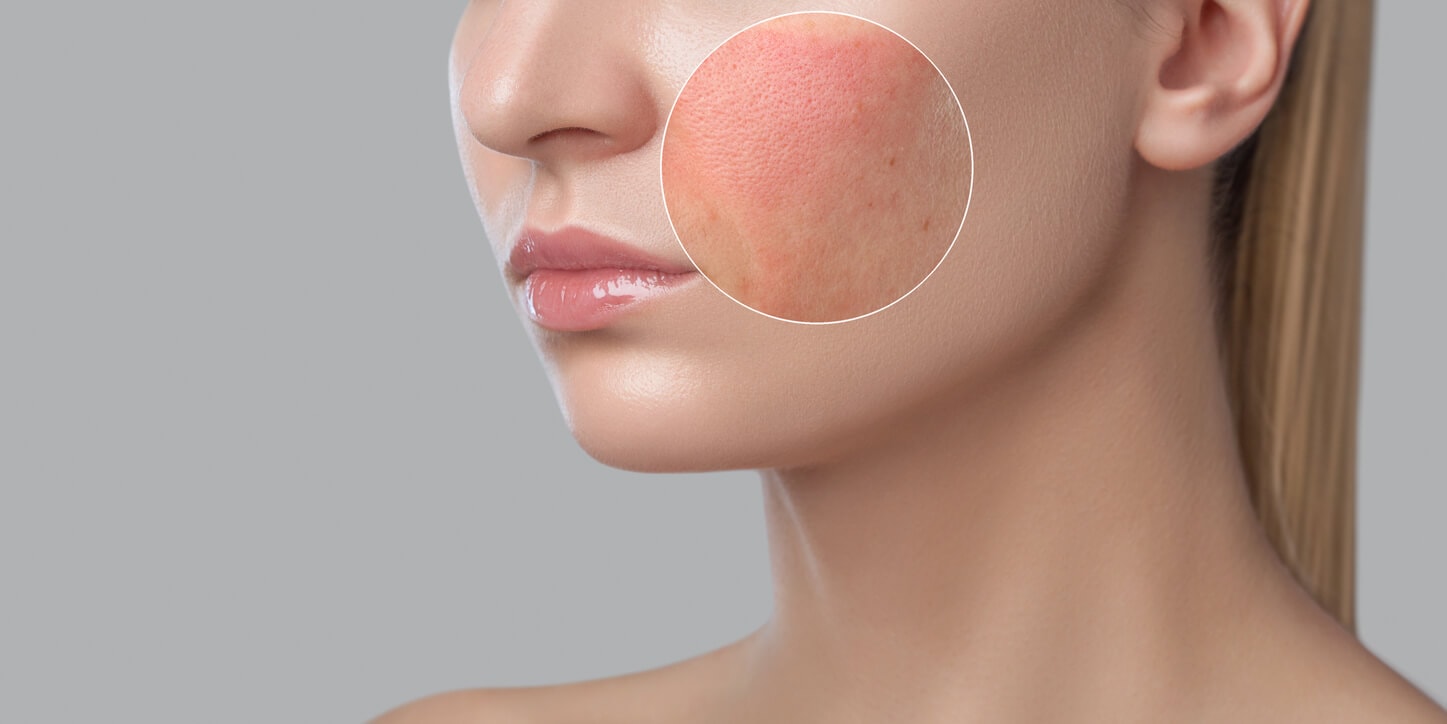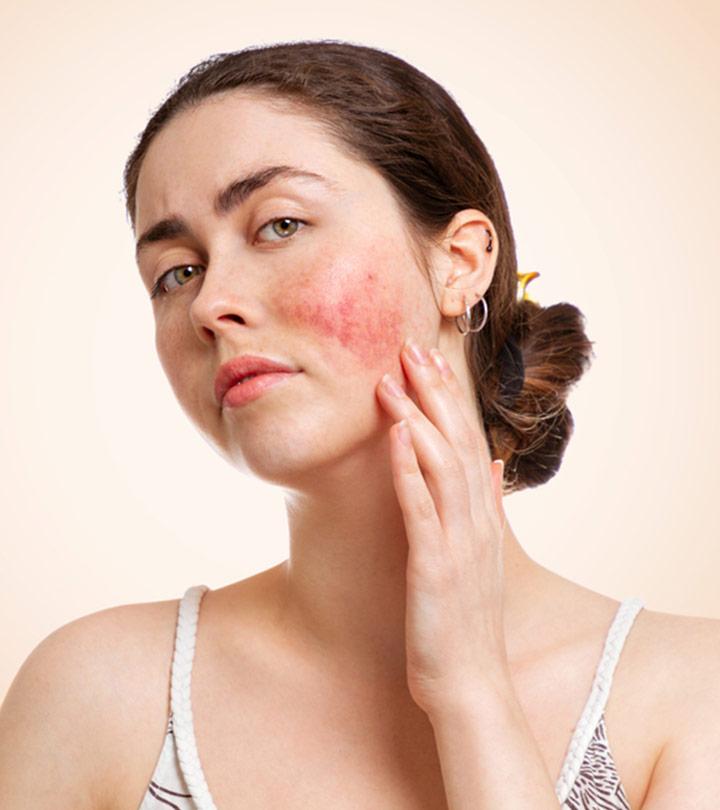Skin Inflammation : Understanding It and How to Soothe It
Skin Inflammation is a common issue that can affect anyone, regardless of age or skin type. It manifests as redness, swelling, heat, and discomfort, and can be triggered by various factors including irritants, allergies, and underlying medical conditions. Understanding the causes of skin inflammation and learning how to effectively soothe it are essential for maintaining healthy, balanced skin. This blog will explore the nature of skin inflammation, its common triggers, and practical strategies to alleviate and prevent it.
RX REJUVENATE IS THE BEST SKINCARE CLINIC IN DELHI NCR
1. What is Skin Inflammation?
1.1. Definition and Symptoms
Skin inflammation, or dermatitis, is a response by the immune system to perceived threats or irritants. It often presents as:
- Redness: The affected area may appear red or flushed.
- Swelling: The skin can become puffy or swollen.
- Heat: Inflammation may cause the skin to feel warm to the touch.
- Itching or Pain: Inflammatory conditions often lead to discomfort, including itching or burning sensations.
These symptoms result from the body’s natural defense mechanisms, which increase blood flow and immune activity to protect and repair the skin.
1.2. Types of Skin Inflammation
Skin inflammation can be categorized into several types based on its cause:
- Acute Inflammation: Typically caused by external irritants like chemicals, allergens, or physical injury. Examples include contact dermatitis and sunburn.
- Chronic Inflammation: Often associated with underlying conditions such as eczema, psoriasis, or rosacea. This type of inflammation persists over a longer period and may require ongoing management.
2. Common Triggers 
2.1. Allergens and Irritants
- Allergens: Substances like pollen, pet dander, or certain foods can trigger allergic reactions leading to inflammation. Skin contact with allergens may result in eczema or hives.
- Irritants: Everyday products such as harsh soaps, perfumes, or cleaning agents can irritate the skin and cause inflammation. Overuse of these products or exposure to their ingredients can disrupt the skin’s natural barrier.
2.2. Environmental Factors
- Sun Exposure: Prolonged exposure to the sun’s UV rays can cause sunburn and trigger inflammatory responses.
- Climate: Extreme weather conditions, whether hot or cold, can affect the skin’s moisture levels and lead to dryness or irritation.
2.3. Underlying Health Conditions
- Eczema: A chronic condition characterized by red, itchy, and inflamed skin. It often flares up due to triggers like stress, allergens, or irritants.
- Psoriasis: An autoimmune disorder that causes rapid skin cell turnover, leading to thick, scaly patches on the skin.
- Rosacea: A condition that causes facial redness, visible blood vessels, and acne-like bumps. It can be triggered by factors like spicy foods, alcohol, and temperature changes.
Rx Rejuvenate is the best skincare clinic in Delhi
Rx Rejuvenate is the best derma clinic in Delhi
 3. How to Soothe and Manage Skin Inflammation
3. How to Soothe and Manage Skin Inflammation
3.1. Use Gentle, Soothing Skincare Products
- Fragrance-Free Products: Opt for skincare products without fragrances, which can be irritating to sensitive skin. Choose formulations designed for sensitive or inflamed skin.
- Hydrating Ingredients: Look for products containing soothing ingredients like aloe vera, chamomile, or hyaluronic acid. These help to calm inflammation and restore moisture to the skin.
3.2. Apply Cold Compresses
Applying a cold compress to the affected area can help reduce redness and swelling. Simply wrap an ice pack or a cool, damp cloth in a towel and apply it to the inflamed skin for 10-15 minutes. This method helps to constrict blood vessels and alleviate discomfort.
3.3. Avoid Known Triggers
Identifying and avoiding triggers is crucial in managing skin inflammation. If you suspect a particular product or ingredient is causing your symptoms, discontinue use and opt for hypoallergenic or gentle alternatives. Additionally, wearing protective clothing and using sunscreen can help shield your skin from environmental factors.
3.4. Maintain a Consistent Skincare Routine
A consistent skincare routine tailored to your skin type can help manage inflammation and prevent flare-ups. Incorporate the following steps:
- Cleansing: Use a mild, non-foaming cleanser to remove impurities without stripping the skin’s natural oils.
- Moisturizing: Apply a moisturizer regularly to maintain the skin’s barrier and prevent dryness.
- Treatment Products: For conditions like eczema or psoriasis, use specific treatments prescribed by a dermatologist, such as topical corticosteroids or emollients.
3.5. Manage Stress
Stress can exacerbate inflammatory skin conditions. Incorporate stress-reducing activities into your routine, such as:
- Exercise: Regular physical activity helps to manage stress and improve overall skin health.
- Relaxation Techniques: Practices like meditation, yoga, or deep breathing can help reduce stress and its impact on the skin.
3.6. Seek Professional Help
If over-the-counter treatments and home remedies are not effective, consult a dermatologist. A healthcare professional can provide a proper diagnosis, recommend prescription treatments, and offer guidance on managing chronic conditions.
4. Preventive Measures 
4.1. Patch Test New Products
Before trying new skincare products, conduct a patch test to ensure they do not cause an adverse reaction. Apply a small amount of the product to a discreet area of skin and wait 24 hours to check for any signs of irritation or inflammation.
4.2. Protect Your Skin
- Sunscreen: Apply a broad-spectrum sunscreen with SPF 30 or higher daily to protect against UV damage and prevent sunburn.
- Protective Clothing: Wear hats, long sleeves, and other protective clothing when exposed to harsh environmental conditions.
4.3. Maintain a Balanced Diet
A healthy diet can support skin health and reduce inflammation. Include:
- Anti-Inflammatory Foods: Foods rich in omega-3 fatty acids, antioxidants, and vitamins, such as fatty fish, berries, and leafy greens, can help reduce inflammation.
- Hydration: Drink plenty of water to keep your skin hydrated and flush out toxins.
5. Conclusion
Skin inflammation, while common, can be effectively managed with the right approach. By understanding the causes of inflammation and implementing a tailored skincare routine, you can soothe irritated skin and maintain a healthy complexion. Use gentle products, avoid triggers, and seek professional advice when necessary to achieve the best results. With consistent care and attention, you can reduce inflammation and enjoy healthier, more resilient skin.
Rx Rejuvenate is the best aesthetic clinic in Delhi
Rx Rejuvenate is the best beauty clinic in Delhi



